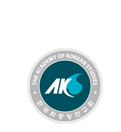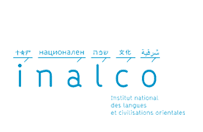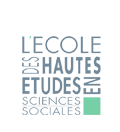Isabelle Sancho. Achievements and Prospects of Korean Studies in France. Korean Studies Achievements and Prospects in the East and the West, Kyemyong University, International Korean Studies Forum, Nov 2017, Daegu, South Korea.
Korean studies in France have a long history that reflects the specificities of the French interest for East Asia from the 18th century. The relationships between the two countries were marked at the 19th century by tumultuous episodes due to French catholic proselytism and expansionist policy in East Asia but also by remarkable and unexpected scholarly achievements. At the 20th century, the isolated initiatives to promote and study Korea in France randomly taken by missionaries, diplomats, collectors and orientalists have been progressively replaced by institutionalized Korean studies that started to be structured within French universities and other higher education institutions with the help of specialists of other areas (China and Japan). After World War II, Korean studies have been continuously growing in France thanks to a whole generation of specialists holding positions in key institutions. These French Koreanists have actively participated in the building of European Korean studies and trained their successors, most of whom have landed positions in Paris and several large cities and are teaching and researching about Korea today. Following the long democratization of Korea and then the newly acquired visibility and attractiveness of Korean culture on the international stage from the late 1980’s to the early 2010’s, undergraduate students population in Korean studies has increased exponentially in France. Under this stunning 2 demographic pressure, many Korea specialists have been successively recruited as permanent staff in major Korean studies institutions in Paris and other large French cities, giving the impression that Korean studies have now become a mature and self-sufficient field. However the repeated largescale reforms of French higher education and research sector that happened to be carried out at the very same time have significantly complicated the task of French Koreanists who might lose the examplary cohesion that provided their strength so far. Facing many challenges, among which the lack of means and human resources as well as the massification of undergraduate students population, today’s French scholars on Korea try to “form community” through a network of francophone Korean studies (Réseau des études sur la Corée RESCOR). Their goal is to train the next generation while trying to keep the diversity of Korean studies in a more and more standarized and uniform academic world. Voir l’article.






